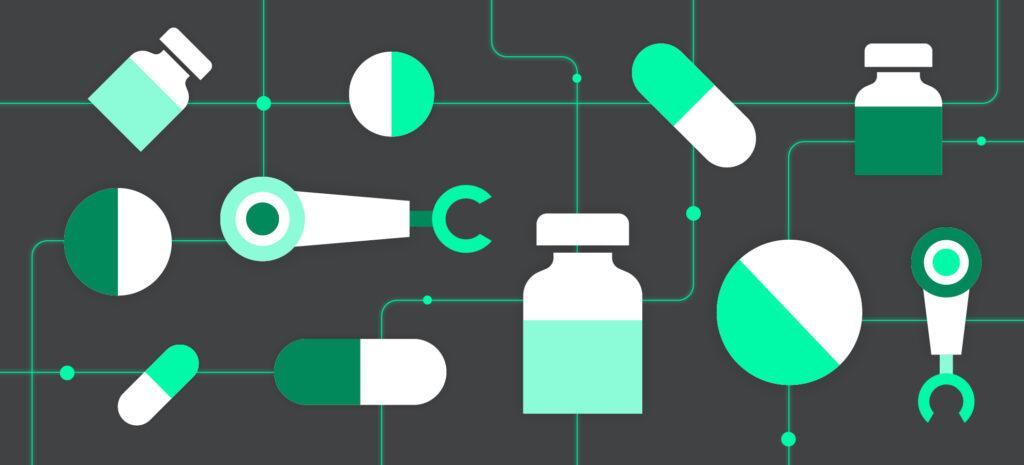The market for oncology drugs is expected to reach US$290 billion by 2030. Accordingly, many pharma companies are aligning their organizations to prioritize oncology pipelines. Amid this growth-focused environment, opportunities for medical affairs oncology roles are growing.
Let’s look at the growing oncology drug market. We’ll explore how medical affairs works with cross functional teams during oncology drug development. We’ll also look at their tasks and how they can be strategic support to increase market share.
Why is the oncology drug market growing?
The oncology drug market is growing due to various factors. These include the potential of biologic drugs, new discoveries in targeted therapies and a larger, older population.
Emergence of biologics
Biologics are medications derived from living organisms. These drugs are changing the oncology treatment landscape and improving patient outcomes, and therefore are attractive targets for R&D investment.
In 2022, the global cancer biological therapy market stood at US$99 billion. By 2032, it’s expected to reach US$213 billion. Examples of biologics include Interleukins, interferons, monoclonal antibodies, and vaccines.
Innovation in personalized medicine
Cancer is a complex disease. Treatments that work well on one person may not be effective in another person with the same disease. As cancer research and development advances, researchers can learn more about how specific cancers behave and what treatments might work best.
Two common types of targeted therapy are small-molecule drugs and monoclonal antibodies. Small-molecule drugs can enter cells easily and are used as targets inside cells. Monoclonal antibodies are lab-created proteins that attach to specific targets on cancer cells.
Aging population and rising diagnosis rates
The International Agency for Research on Cancer (IARC) estimates 27.5 million new cancer cases and 16.3 million cancer deaths worldwide in 2040. This is higher than 17.0 million new cancer cases and 9.5 million cancer deaths in 2018.
This increase will mainly be due to the growth and aging of the world’s population and to risk factors like smoking, poor diet, lack of exercise, and a declining birth rate. At this pace, cancer deaths may outpace those from chronic conditions like heart disease.
What is the role of medical affairs in oncology drug development?
Medical affairs professionals play a critical role in drug development within drug companies. In any therapeutic area, medical affairs is responsible for bridging the gap between the clinical research and launch of new products, ensuring that drugs are safe and effective for patients, and working closely with stakeholders such as physicians and regulatory agencies.
As the market for oncology drugs continues to grow, medical affairs leaders in this therapeutic area will be in high demand. Here are some of the requirements for effective medical affairs leadership within pharma company oncology divisions:
Understanding the oncology drug development process
Medical affairs professionals must understand the lengthy and complex oncology drug development process. It takes years and significant resources to ensure a potential new cancer drug is safe and effectively treats the disease. In the US, cancer drugs go through a long development and approval process, which includes:
- Pre-clinical research, including early testing
- Clinical research or clinical trials, which involve testing on human subjects
- Post-clinical research after the drug is approved and in use
Clinical trial design and execution
Medical affairs teams must have a strong understanding of clinical trial design and execution. They ensure that clinical trials are conducted ethically, efficiently, and in compliance with United States FDA or other regulatory requirements.
Interacting with key stakeholders
During the development of an oncology drug, a medical affairs team interacts with key stakeholders to gain oncology insights:
- Physicians
- Patients and patient advocates
- Regulatory agencies
- Internal teams like R&D or marketing
They must communicate effectively with these stakeholders and build strong relationships to advance drug development efforts.
Scientific communication and education
Medical affairs professionals in oncology drug development need top-notch scientific communication skills. They communicate complex scientific information to various audiences:
- Physicians
- Patients
- Internal stakeholders
They must also ensure they are effectively integrating scientific information from multiple channels.
Compliance and regulatory affairs
Across all therapeutic areas, medical affairs teams prioritize adhering to regulatory requirements and compliance. They are responsible for ensuring that all activities related to drug development comply with regulatory requirements.
Market access and reimbursement
No drug can be successful if physicians and patients do not widely accept it. Thus, medical affairs needs to understand market access and reimbursement. They are responsible for ensuring that new drugs are accessible to patients and reimbursed by payers. Market access is one of the top oncology challenges in pharma sales, significantly impacting success at launch.
Medical information management
A critical aspect of medical affairs responsibilities in oncology drug development is managing medical information about developing drugs. The medical affairs team ensures that all medical information about new drugs is accurate, up-to-date, and compliant with regulatory requirements.
Continuous learning and professional development
Medical affairs should update their knowledge and skills to stay current with developments in oncology drugs, scientific research, and regulatory requirements. They may attend conferences, participate in training programs, or engage in other forms of professional development.
How does insights management support medical affairs teams in oncology drug development?
Medical affairs teams work with essential stakeholders, from patients and patient advocacy groups to researchers and HCPs. They also deal with much information gathered from more channels, including social media platforms. To support the company’s oncology drug development pipeline, medical affairs must be organized and agile.
Traditionally, smaller drug companies manage insight generation activities in a highly manual fashion, with spreadsheets and documents that are updated manually. However, large pharma organizations may also still rely on many difficult manual processes. What’s the best way to achieve effective oncology engagement for medical affairs?
Insights management technology is a collection of advanced applications designed to support pharma companies’ specific workflows. A smaller team might use asynchronous engagement applications and social medial monitoring within their insights management platform. Larger teams might need a complete disease community landscape and artificial intelligence tools to help them accelerate their work.
Medical affairs professionals work full-time to support oncology drug development in their organizations. In our article on orphan drug development, we learn more about how medical affairs uses insights management technology to support complex functions.







